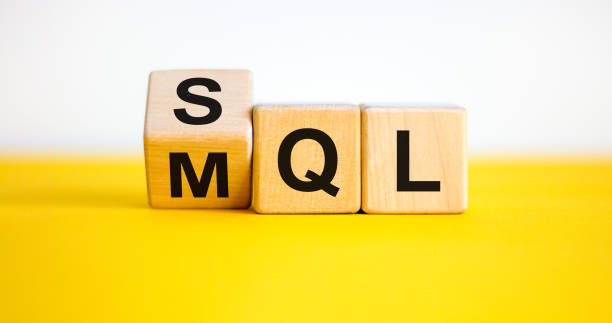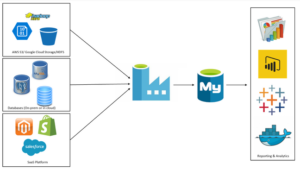We live in an age of incredible technological advancement, with relational databases being one of the foundation technologies. As such, it’s important for us to understand the SQL syntax of the various databases available to us so that we can make the best use of our data. This article will explore the similarities and differences of the SQL syntax of the different popular relational databases.
Exploring the SQL Syntax Jungle
When comparing the SQL syntax of the different databases, it is important to first understand the different SQL dialects that exist. SQL is an incredibly complex language, and each database can have its own unique set of rules and syntaxes. Knowing which dialect is used by which database is the first step in being able to make an accurate comparison.
In addition, it is important to understand the different types of databases that are available. Each type of database will have its own unique set of SQL syntaxes, so it is important to be aware of this if you are attempting to make comparisons.
Finally, it is important to understand the specific implementations of the SQL syntax that each database uses. Each database may have its own version of the syntax, and understanding these differences is essential for understanding the similarities and differences in the SQL syntax of the databases.
SQL Syntax – The Great Equalizer?
One of the main advantages of SQL syntax is that it is the great equalizer when it comes to databases. Even though each database may have its own unique version of SQL syntax, the core syntax is the same across all databases. This makes it relatively easy for users to switch between different databases without having to learn a completely new language.
However, it is important to note that the specific implementations of the syntax can vary greatly between databases. This means that, while the basic syntax is the same, the way in which the syntax is used can be vastly different. It is important to understand this when comparing the SQL syntax of different databases.
A Brief Overview of Popular Relational Databases
Before we can begin to make comparisons between the SQL syntax of different databases, it is important to have a brief overview of the various databases that are available. The most popular relational databases are Oracle, MySQL, Microsoft SQL Server, and PostgreSQL. Each of these databases has its own set of rules and syntaxes for the SQL language.
In addition to the popular relational databases mentioned above, there are also other databases that use SQL, such as IBM’s DB2 and Sybase’s Adaptive Server Enterprise. These databases also use their own version of the SQL syntax.
Examining the SQL Syntax of Each Database
Now that we understand the different databases that are available and the different types of SQL dialects, it is time to examine the SQL syntax of each database. It is important to note that each database has its own set of rules and syntaxes, and these can vary greatly from database to database.
For example, Oracle uses the PL/SQL dialect of SQL, while MySQL and PostgreSQL use the ANSI SQL-92 standard. Microsoft SQL Server uses the Transact-SQL dialect, while IBM’s DB2 uses the SQL PL dialect. Sybase’s Adaptive Server Enterprise uses its own version of the SQL syntax.
SQL Syntax – Making Comparisons Count
Once you have an understanding of the different dialects of SQL and the different databases that use them, it is time to begin making comparisons. It is important to note that different databases may have different implementations of the same SQL syntax. This means that, while the basic syntax may be the same, the way in which it is used may be vastly different.
For example, Oracle’s PL/SQL dialect has a different approach to transactions than MySQL’s ANSI SQL-92 dialect. Similarly, Microsoft SQL Server’s Transact-SQL dialect is different from Oracle’s PL/SQL.
What Can We Learn from SQL Syntax Comparison?
Comparing the SQL syntax of different databases can be incredibly helpful in understanding the different ways in which each database handles data. It can also be useful in understanding the differences between the various implementations of SQL, and how they can be used to create powerful applications.
In addition, comparing the SQL syntax of different databases can help you understand the differences in performance between the databases. This can be especially helpful if you are trying to decide which database will be the best fit for your application.
A Look at Key Differences in SQL Syntax
When comparing the SQL syntax of different databases, it is important to look at the key differences in syntax between the databases. These key differences can often be found in the way that certain statements are written, the way that certain functions are handled, and the way that data is stored and accessed.
For example, Oracle and Microsoft SQL Server use different syntax for creating stored procedures, and MySQL uses different syntax for working with user-defined functions. Similarly, the way in which transactions are handled can vary greatly between databases.
SQL Syntax – Making the Most Out of Your Database
Comparing the SQL syntax of different databases can be incredibly valuable in understanding the different ways in which each database can be used. By understanding the different implementations of SQL, you can make the best use of your database and create powerful applications.
In addition, understanding the differences in SQL syntax can help you optimize your database for performance. This can be especially helpful if you are trying to decide which database is the best fit for your application.
Understanding the SQL syntax of popular relational databases is key to making the most out of the technology available to us. By comparing the SQL syntax of different databases, we can gain an understanding of the differences between the various implementations of SQL. This can be incredibly helpful in understanding the different ways in which each database can be used and to optimize our databases for performance.




Itís nearly impossible to find well-informed people for this topic, but you seem like you know what youíre talking about! Thanks
Hello! I simply would like to offer you a huge thumbs up for the great information you have right here on this post. I will be coming back to your blog for more soon.
Great article! I appreciate the clear and insightful perspective you’ve shared. It’s fascinating to see how this topic is developing. For those interested in diving deeper, I found an excellent resource that expands on these ideas: check it out here. Looking forward to hearing others thoughts and continuing the discussion!